How to Cope with the Mental Effects of Physical Disability
Navigating Mental Well-being After a Physical Disability

Understanding the Emotional Journey of Disability
Living with a physical disability can profoundly affect mental health, often triggering a complex mix of emotions from grief and shock to acceptance and resilience. Recognizing and addressing these psychological effects are essential steps toward maintaining well-being and thriving despite adversity.
The Emotional Spectrum of Adapting to Disability
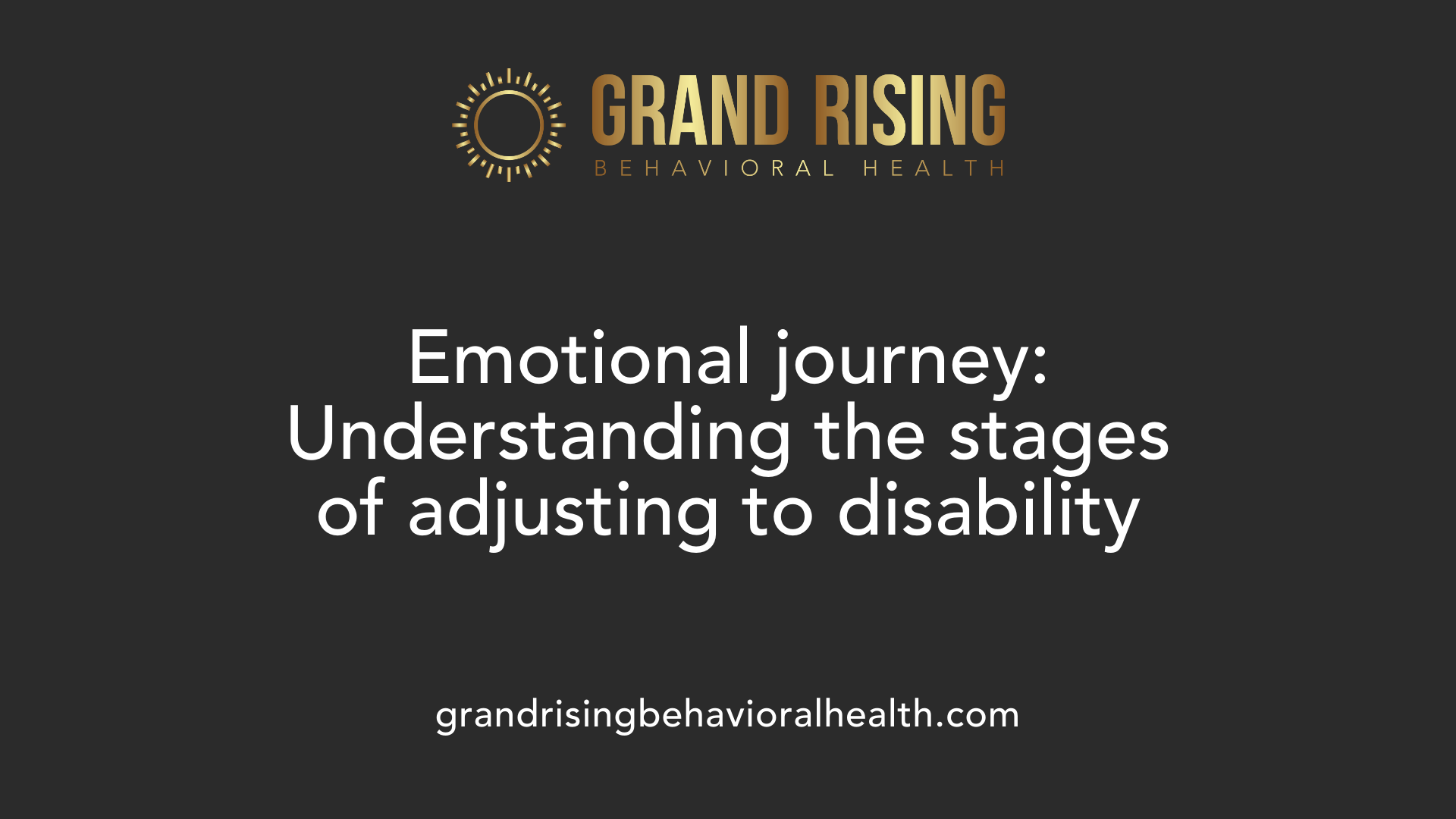
What are the stages of psychological adjustment to disability?
Adjusting to a disability is a deeply personal process involving a series of emotional and psychological responses. The stages often mirror the well-known Kubler-Ross model of grief, with individuals experiencing a range of feelings as they come to terms with their new reality.
Initially, many encounter a state of shock, feeling numb or disoriented as they process the sudden change. This is often followed by denial, where individuals might refuse to accept the extent of their disability or hope that circumstances will improve. Denial can serve as a temporary coping mechanism but may last several weeks.
As the initial shock subsides, feelings of anger or depression often emerge. These emotions stem from frustration, grief over lost abilities, or sadness about altered life plans. Such stages can be intense and challenging, but they are normal parts of emotional processing.
Gradually, many individuals reach a stage of acceptance. Here, they acknowledge their disability and begin to adapt to their circumstances. Acceptance involves developing new strategies to function and finding ways to maintain a meaningful life despite limitations.
Successfully progressing through these stages depends on various factors, including social support, coping skills, and personal resilience. Recognizing that these phases are not necessarily linear can help individuals be patient with their emotional journey.
Understanding and supporting oneself through these stages is crucial for mental health and overall well-being, allowing for healthier adjustment and improved quality of life.
For more insights, searching
Strategies for Effective Coping and Support Systems
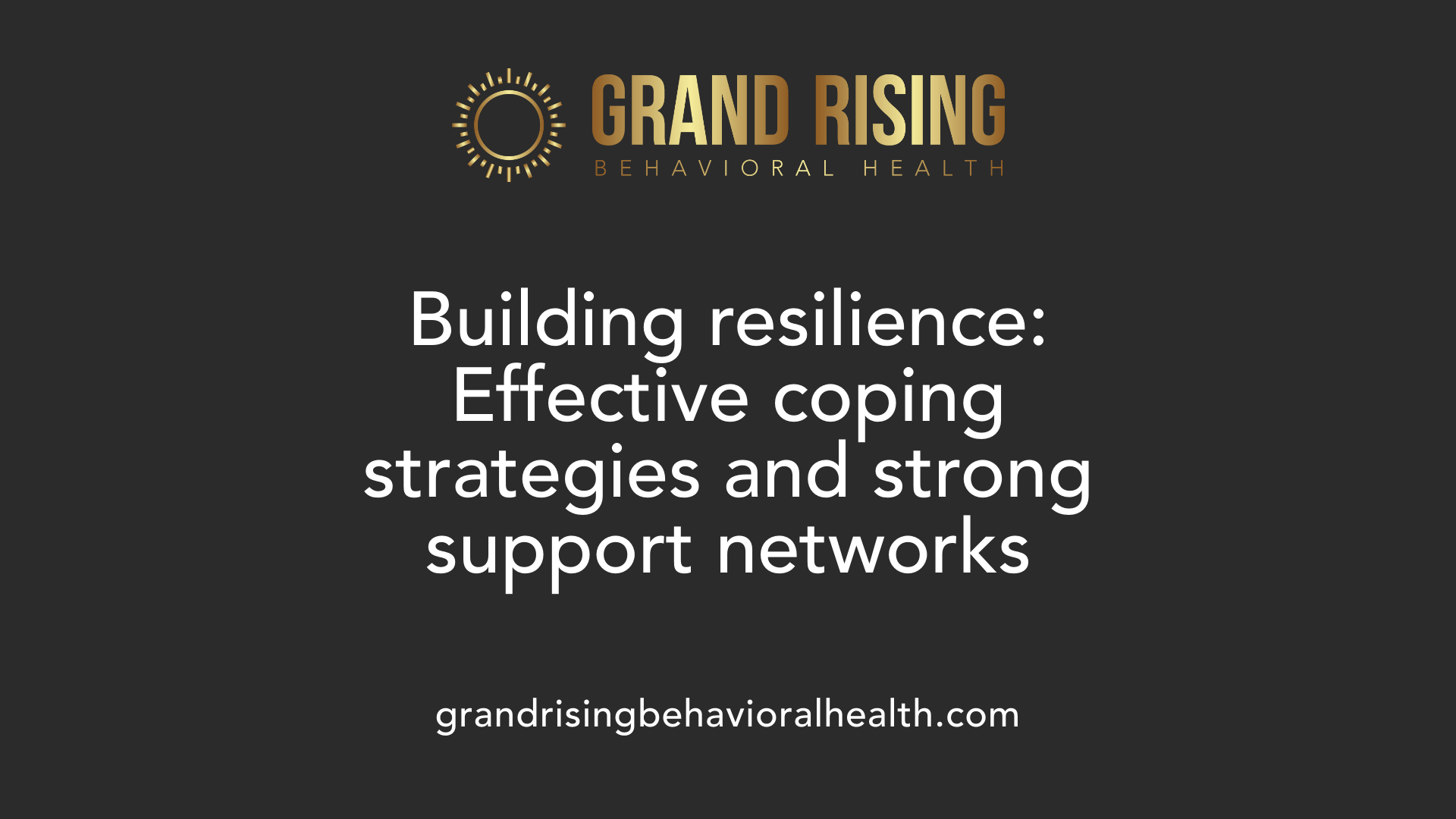
What are effective strategies for coping with mental health challenges related to disability?
Coping with mental health challenges in the context of disability requires a multifaceted approach. Seeking emotional and social support from family, friends, peer groups, and mental health professionals creates a strong foundation for resilience. These support networks help reduce feelings of loneliness and provide encouragement during difficult times.
Engaging in purposeful activities such as hobbies, volunteering, or caring for pets can significantly boost mental well-being. Such activities foster a sense of accomplishment and purpose, which are vital for emotional health. Practicing stress management techniques like mindfulness, deep breathing exercises, meditation, and regular physical activity can also alleviate anxiety and promote mental stability.
Acceptance plays a crucial role—allowing oneself to mourn the loss of previous abilities while gradually adapting to the new reality. Establishing accessible, inclusive mental health services and nurturing community environments that are supportive and understanding further assist in coping and preventing mental health deterioration.
How can emotional support and resilience be built for individuals with disabilities?
Developing emotional support and resilience involves strengthening internal and external resources. Internally, fostering acceptance of one’s disability, maintaining autonomy, perseverance, and cultivating positive emotions such as gratitude and hope are key. Spiritual well-being and mindfulness practices can provide additional resilience, helping individuals find peace amid adversity.
Externally, creating strong social networks and participating in meaningful activities bolster emotional resilience. Support from family, friends, and community groups offers vital reinforcement. Engaging in resilience-building programs and seeking professional counseling or therapy focus on reinforcing coping skills and emotional strength.
A holistic approach that includes accessible education, community involvement, and resilience training empowers individuals with disabilities. These strategies help them adapt effectively, sustain mental health, and pursue fulfilling lives.
Understanding the Impact of Society and Accessibility on Mental Health
How does physical disability impact mental health and well-being?
Physical disability can have a profound effect on an individual's mental health and overall sense of well-being. Research indicates that people living with a disability are nearly five times more likely to experience mental health problems, including depression, anxiety, and frequent psychological distress, compared to those without such disabilities.
Several factors contribute to these elevated risks. Chronic pain, mobility limitations, and health-related challenges can weigh heavily on mental health. Social isolation and loneliness, often caused by physical barriers or transportation issues, reduce social interactions that are essential for emotional support.
Societal discrimination and pervasive stigma further heighten emotional distress. Negative stereotypes and social exclusion can erode self-esteem, induce feelings of shame, and foster a sense of disempowerment. Managing daily activities amidst systemic barriers and inaccessible environments also adds continuous stress.
Moreover, crises like the COVID-19 pandemic have intensified these issues by limiting access to healthcare and social services, increasing feelings of abandonment and vulnerability.
Addressing these challenges requires a comprehensive approach. Legal protections such as the Americans with Disabilities Act (ADA) ensure rights to accessible facilities and equal opportunities. Support services, including counseling, social programs, and inclusive community initiatives, are crucial. Promoting awareness, reducing stigma, and fostering inclusive environments can significantly improve mental health outcomes and help disabled individuals live more fulfilling, autonomous lives.
The Role of Support Networks and Resources in Mental Health Care
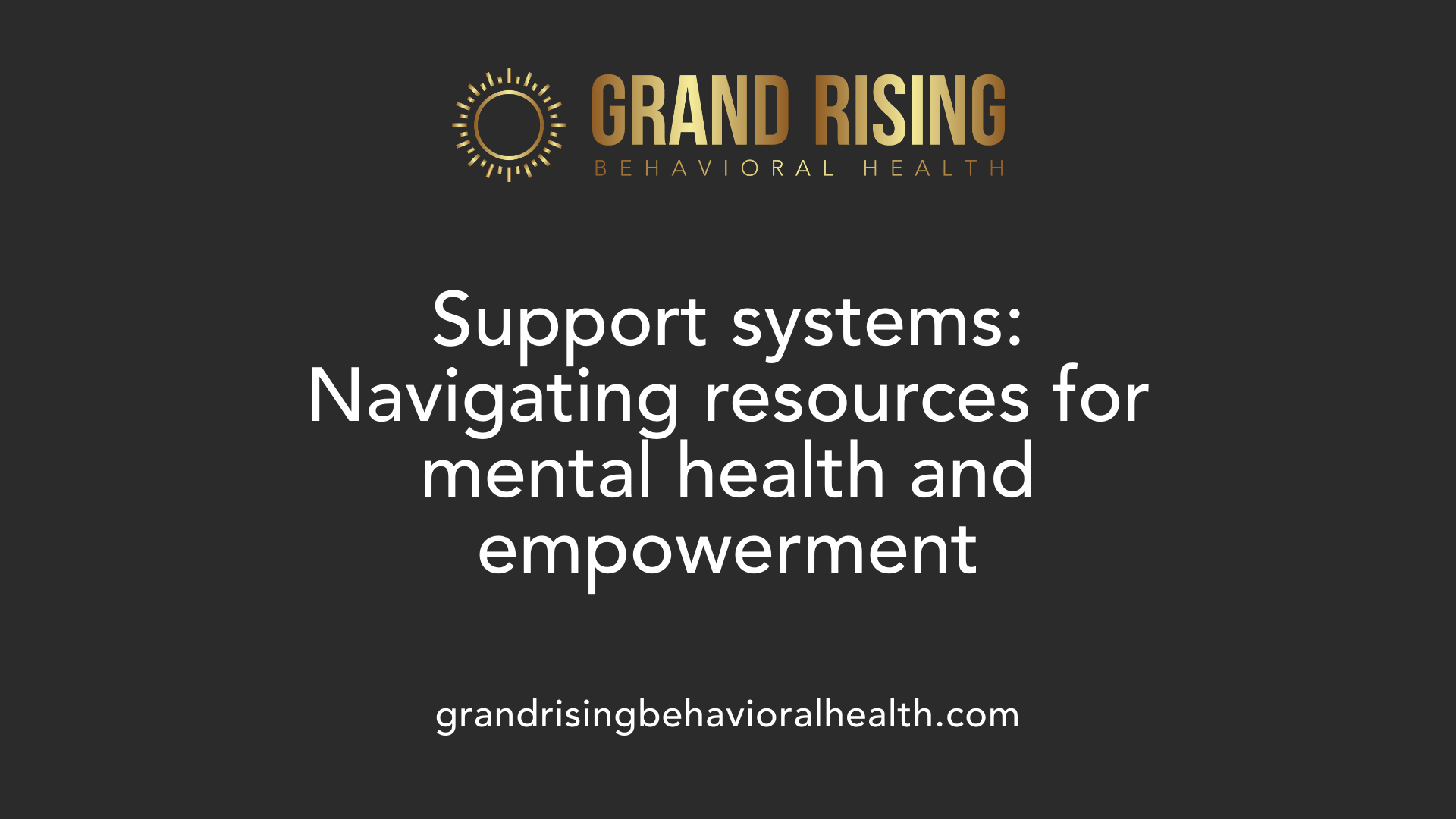
What resources and support options are available for mental well-being among people with disabilities?
Supporting mental health in individuals with disabilities involves a range of resources and support systems aimed at fostering emotional resilience and providing necessary care.
Professional mental health services, such as counseling and psychotherapy, are vital. These can often be accessed through primary healthcare providers, insurance plans, or specialized clinics tailored for individuals with disabilities.
National organizations play a pivotal role in offering support and education. For example, the National Alliance on Mental Illness (NAMI) provides helplines, local support groups, educational programs, and community events designed to assist people coping with mental health challenges. These resources aim to reduce stigma and promote awareness.
Government agencies like the National Institute of Mental Health (NIMH) and the Substance Abuse and Mental Health Services Administration (SAMHSA) provide extensive information about various mental health conditions, treatment options, and crisis support services.
A crucial resource is the 988 Suicide & Crisis Lifeline, which offers 24/7 crisis support through call, text, or chat, ensuring immediate help during emergencies.
Support for specific populations, such as military veterans, includes services like the Veterans Crisis Line and VA mental health programs, offering tailored assistance to those who have served.
Community-based initiatives and programs such as Mental Health First Aid educate the public on recognizing mental health issues early, facilitating early intervention and reducing stigma.
Access to these diverse resources helps individuals with disabilities navigate mental health challenges effectively, fostering a more inclusive and supportive environment for their well-being.
Addressing Stigma and Promoting Acceptance
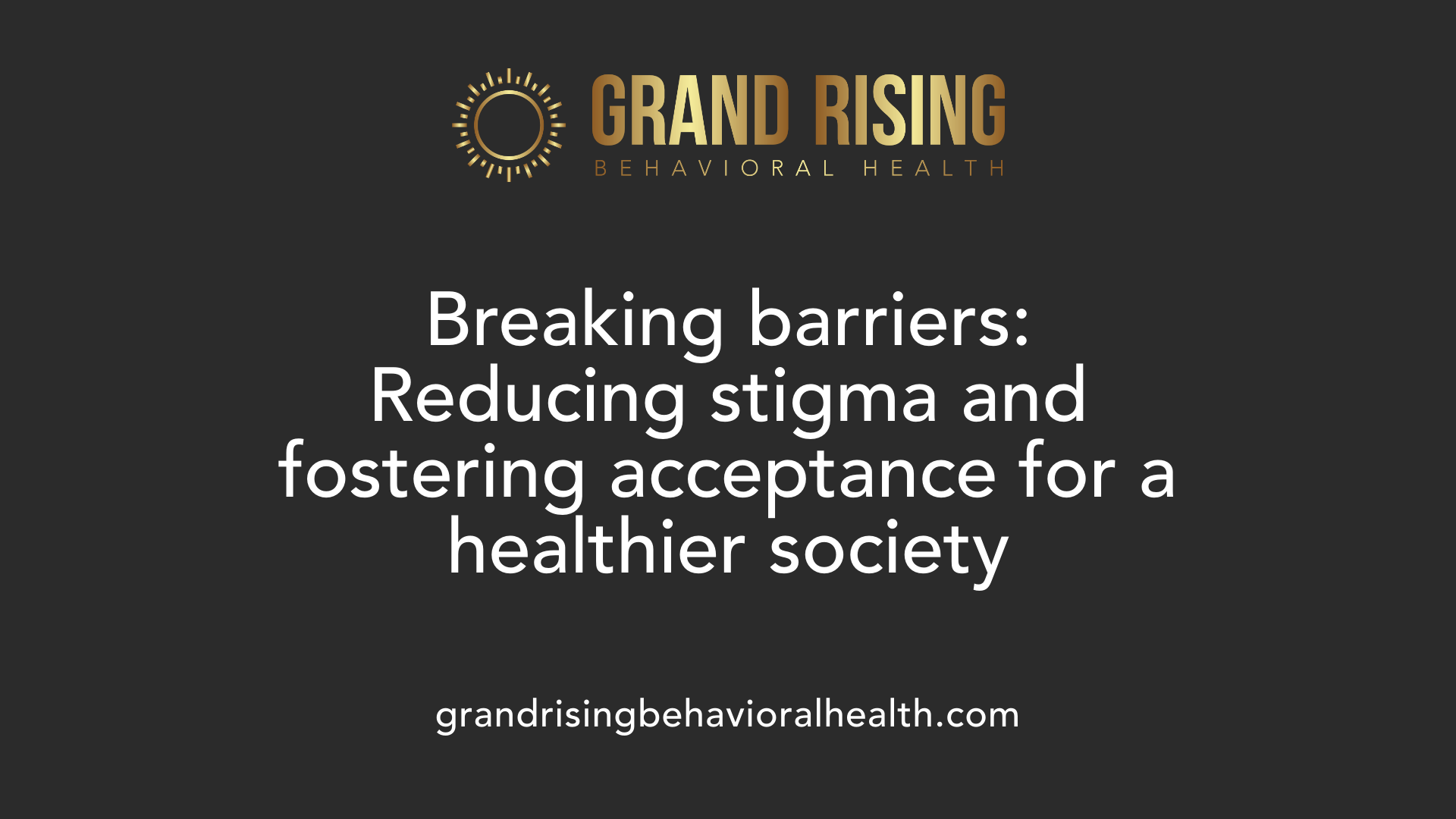
How does internalized stigma affect mental health in individuals with disabilities?
Internalized stigma occurs when people with disabilities accept negative stereotypes about themselves. This acceptance can significantly diminish their psychological well-being, leading to feelings of shame, low self-esteem, and depression. It can also contribute to social withdrawal, making individuals less likely to seek support or participate fully in society. The emotional toll of internalized stigma can worsen mental health challenges, including anxiety and feelings of inadequacy.
What strategies can help reduce societal stigma and ableism?
Reducing societal stigma involves several approaches. Education campaigns are vital in changing perceptions by informing the public about the realities of living with a disability. Inclusive media representation can challenge stereotypes and showcase positive, diverse images of people with disabilities. Legal protections, such as the Americans with Disabilities Act (ADA), help ensure equal rights and access, fostering a more inclusive environment. Promoting visibility and awareness can shift societal attitudes from discrimination to acceptance.
Why are awareness campaigns, media, and legal protections important?
Awareness campaigns and responsible media coverage play crucial roles in shaping public attitudes towards disability. They help normalize disability, dispel myths, and highlight stories of adaptation and success. Legal protections provide a framework for safeguarding rights and preventing discrimination, which directly impacts social inclusion and mental health.
What measures can promote acceptance and better mental health?
Promoting understanding and empathy through community programs and school education encourages inclusive attitudes early on. Supporting legislation that enforces equal opportunity and accessibility reinforces societal commitment to inclusion. Combining these efforts with resilience-building for individuals with disabilities can buffer the negative effects of internalized stigma, leading to improved mental health outcomes.
| Strategy | Focus Area | Effect | Additional Details |
|---|---|---|---|
| Education Campaigns | Public Awareness | Reduces stereotypes | Helps people understand the realities of living with disability |
| Inclusive Media Representation | Representation and Visibility | Shifts societal attitudes | Showcases diverse and positive stories of people with disabilities |
| Legal Protections (e.g., ADA) | Rights and Access | Guarantees equal opportunities | Protects against discrimination and promotes social inclusion |
| Community and School Programs | Early Education | Fosters acceptance from a young age | Builds empathy and normalizes diversity |
Efforts to address ableism include societal change initiatives and legislative measures. These, coupled with individual resilience, can significantly improve mental health and quality of life for people with disabilities.
The Importance of Holistic and Continuous Care
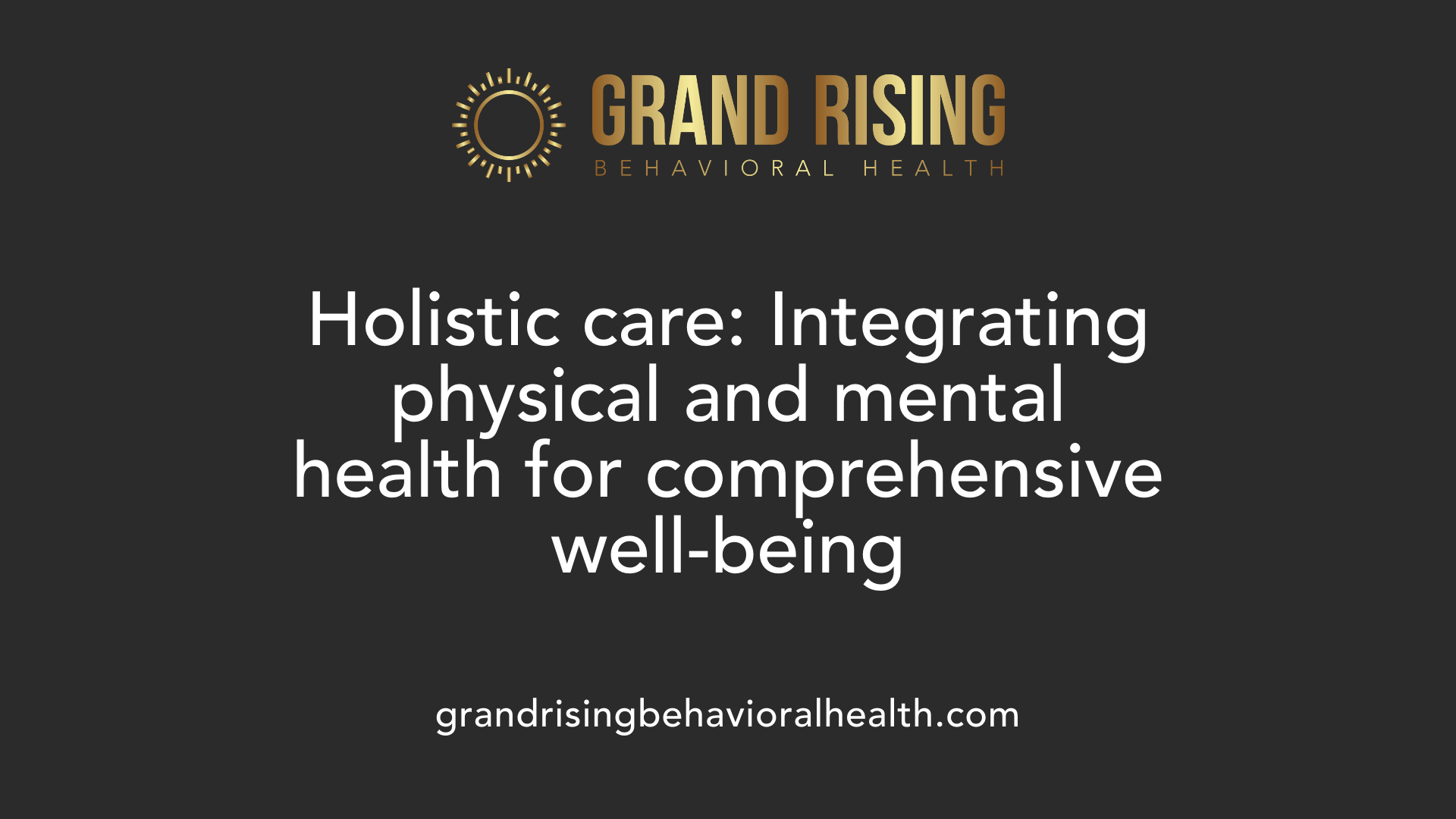
How is the integration of physical and mental health care essential for individuals with disabilities?
Addressing only the physical aspects of a disability is not enough; mental health profoundly impacts overall well-being. Integrated care ensures that emotional, psychological, and social needs are recognized and managed alongside physical treatment. This approach helps reduce feelings of isolation, stress, and depression, which are common among people with disabilities.
Healthcare providers often coordinate services to provide comprehensive support. When mental health is prioritized, individuals are more likely to engage actively in their treatment and rehabilitation processes, leading to better health outcomes.
Why are regular mental health assessments important?
Disabilities can trigger complex emotional responses such as grief, anxiety, or depression. Regular mental health checks facilitate early detection of these issues, allowing timely intervention. Consistent evaluations by qualified professionals help tailor support strategies, improve coping mechanisms, and prevent escalation of mental health problems.
Monitoring mental health over time ensures that care adapts to changing needs, fostering resilience and sustained emotional well-being.
What is the role of multidisciplinary teams and personalized care plans?
Collaborative efforts among diverse health professionals are vital. Teams typically include doctors, psychologists, occupational therapists, social workers, and rehabilitation specialists.
Each team member contributes insights to develop a personalized care plan that addresses both physical limitations and emotional challenges. This holistic approach promotes adaptive strategies, autonomy, and emotional health.
Customized care plans consider individual goals, social circumstances, and cultural background, ensuring that support is relevant and effective.
| Aspect | Description | Impact |
|---|---|---|
| Integration of physical and mental health | Combining treatment strategies for both physical and psychological well-being | Improved overall health, reduced isolation |
| Regular mental health assessments | Routine screenings to evaluate emotional state | Early detection, timely intervention |
| Multidisciplinary teams | Collaboration among various healthcare specialists | Personalized, comprehensive support |
Focusing on a holistic and ongoing approach helps individuals with disabilities lead fulfilling lives, cope with challenges effectively, and maintain their independence and happiness.
Building a Foundation for Mental Resilience
Successfully coping with the mental effects of physical disability involves a multifaceted approach that includes understanding emotional phases, utilizing support systems, fostering resilience, and combating societal stigma. With the right resources, community, and self-care strategies, individuals can navigate their journey toward acceptance, purpose, and mental well-being, ultimately leading healthier and more fulfilling lives.
References
- Living Well with a Disability - HelpGuide.org
- Psychological Impact of Acquiring a Disability | Rocky Mountain ADA
- The Impact of Physical Disabilities on Mental Health and Well-Being
- Physical Disability & Mental Health - 1800Wheelchair
- Adapting to Physical Disability: Coping with Change | FHE Health
- How Can You Support the Mental Health of a Person With a ...
- People with Disabilities | National Alliance on Mental Illness (NAMI)
More Resources
A team ready to start your journey.
Get in touch — today.
We are a safe space – a haven for exceptional individuals to receive discreet, personalized, in-person treatment and care.
.avif)










